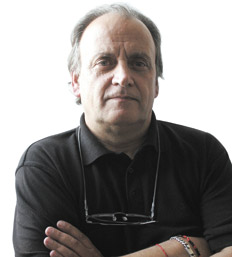Multinational Biotechnology Corporations And Their Supporters Mounted An Unprecedented Attack By Trying To Ridicule Andrés Carrasco’s Research, Incl. Personal Threats.

“I expected a reaction but not such a violent one.”
“If I know something, I will not shut my mouth.”
In April 2009 Andrés Carrasco, an Argentinian embryologist, gave an interview to the leading Buenos Aires newspaper Página 12, in which he described the alarming results of a research project he is leading into the impact of the herbicide glyphosate on the foetuses of amphibians. Dr Carrasco, who works in the Ministry of Science’s Conicet (National Council of Scientific and Technical Investigations), said that their results suggested that the herbicide could cause brain, intestinal and heart defects in the foetuses. Glyphosate is the herbicide used in the cultivation of Monsanto’s genetically modified soya, which now covers some 18 million hectares, about half of Argentina’s arable land. [1]
Carrasco said that the doses of herbicide used in their study were “much lower than the levels used in the fumigations”. Indeed, as some weeds have become resistant to glyphosate, many farmers are greatly increasing the concentration of the herbicide. According to Página 12, this means that, in practice, the herbicide applied in the fields is between 50 and 1,540 times stronger than that used by Carrasco. The results in the study are confirming what peasant and indigenous communities – the people most affected by the spraying – have been denouncing for over a decade. The study also has profound consequences for the USA’s anti-narcotics strategy in Colombia, because the planes spray glyphosate, reinforced with additional chemicals, on the coca fields (and the peasants living among them).
Three days after the interview, the Association of Environmental Lawyers filed a petition with the Argentine Supreme Court, calling for a ban on the use and sale of glyphosate until its impact on health and on the environment had been investigated. Five days later the Ministry of Defence banned the planting of soya in its fields. This sparked a strong reaction from the multinational biotechnology companies and their supporters. Fearful that their most famous product, a symbol of the dominant farming model, would be banned, they mounted an unprecedented attack on Carrasco, ridiculing his research and even issuing personal threats. He was accused of inventing his whole investigation, as his results have not yet been peer-reviewed and published in a prestigious scientific journal.
Read moreScientist: Monsanto’s herbicide could cause brain, intestinal and heart defects in foetuses
